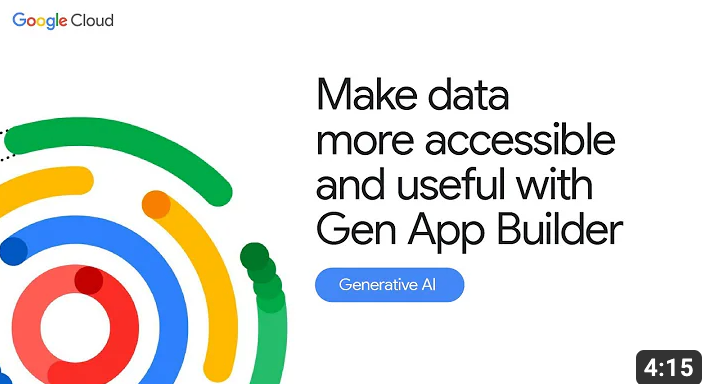What is artificial intelligence (AI) in finance?
Artificial intelligence (AI) in finance helps drive insights for data analytics, performance measurement, predictions and forecasting, real-time calculations, customer servicing, intelligent data retrieval, and more. It is a set of technologies that enables financial services organizations to better understand markets and customers, analyze and learn from digital journeys, and engage in a way that mimics human intelligence and interactions at scale.
How is AI used in finance?
AI in finance can help in five general areas: personalize services and products, create opportunities, manage risk and fraud, enable transparency and compliance, and automate operations and reduce costs.
What is ML in finance?
Machine learning (ML) is a subset of artificial intelligence that enables a system to autonomously learn and improve using neural networks and deep learning, without being explicitly programmed, by feeding it large amounts of data. It allows financial institutions to use the data to train models to solve specific problems with ML algorithms – and provide insights on how to improve them over time.
Applications: How AI can solve real challenges in financial services
Speech recognition
Convert speech to text to improve your service with insights from customer interactions, such as contact center sales calls, and drive better customer service experiences.
Sentiment analysis
Identify sentiment in a given text with prevailing emotional opinion using natural language AI, such as investment research, chat data sentiment, and more.
Anomaly detection
Detect anomalies, such as fraudulent transactions, financial crime, spoofing in trading, and cyber threats.
Recommendations
Deliver highly personalized recommendations for financial products and services, such as investment advice or banking offers, based on customer journeys, peer interactions, risk preferences, and financial goals.
Translation
Make your content, such as financial news, and apps multilingual with fast, dynamic machine translation at scale to enhance customer interactions and reach more audiences wherever they are.
Document processing
Extract structured and unstructured data from documents and analyze, search and store this data for document-extensive processes, such as loan servicing, and investment opportunity discovery.
Image recognition
Derive insights from images and videos to accelerate insurance claims processing by assessing damage to property such as real estate or vehicles, or expedite customer onboarding with KYC-compliant identity document verification.
Conversations
Delight your customers with human-like AI-powered contact center experiences, such as banking concierge or customer center, to lower costs, and free up your human agents' time. Transform personal finance and give customers more ways to manage their money by bringing smart, intuitive experiences to your apps, websites, digital platforms, and virtual tools.
Data science and analytics
Predictive modeling
Use data customer, risk, transaction, trading or other data insights to predict specific future outcomes with high degree of precision. These capabilities can be helpful in fraud detection, risk reduction, and customer future needs’ prediction.
Cybersecurity
Automate aspects of cybersecurity by continuously monitoring and analyzing network traffic to detect, prevent, and respond to cyberattacks and threats.
Generative AI
Build new AI-powered search and conversational experiences by creating, recommending, synthesizing, analyzing, and engaging in a natural and responsible way. Watch this demo to see how a financial services firm is transforming the search experience for employees.
Benefits of AI in Finance
Automation
Automation
AI can help automate workflows and processes, work autonomously and responsibly, and empower decision making and service delivery. For example, AI can help a payments provider automate aspects of cybersecurity by continuously monitoring and analyzing network traffic. Or, it may enhance a bank’s client-first approach with more flexible, personalized digital banking experiences that meet client needs faster and more securely.
Accuracy
Accuracy
AI can help financial services organizations control manual errors in data processing, analytics, document processing and onboarding, customer interactions, and other tasks through automation and algorithms that follow the same processes every single time.
Efficiency
Efficiency
When AI is used to perform repetitive tasks, people are free to focus on more strategic activities. AI can be used to automate processes like verifying or summarizing documents, transcribing phone calls, or answering customer questions like “what time do you close?” AI bots are often used to perform routine or low-touch tasks in the place of a human.
Speed
Speed
AI can process more information more quickly than a human, and find patterns and discover relationships in data that a human may miss. That means faster insights to drive decision making, trading communications, risk modeling, compliance management, and more.
Availability
Availability
With AI, you can help your customers complete financial tasks, find solutions to meet their goals, and manage and control their finances whenever and where they are. When running in the cloud, AI and ML can continuously work on its assigned activities.
Innovation
Innovation
The ability to analyze vast amounts of data quickly can lead to unique and innovative product and service offerings that leapfrog the competition. For instance, AI has been used in predictive analytics to modernize insurance customer experiences without losing the human touch.
The future of AI in financial services
AI will help drive financial services growth. Many organizations have gone digital and learned new ways to sell, add efficiencies, and focus on their data. Going forward, they will need to personalize relationship-based customer engagement at scale. AI plays a key role in helping drive tailored customer responses, make safer and more accountable product and service recommendations, and earn trust by broadening concierge services that are available when customers need them the most.
In addition, financial institutions will need to build strong and unique permission-based digital customer profiles; however, the data they need may exist in silos. By breaking down these silos, applying an AI layer, and leveraging human engagement in a seamless way, financial institutions can create experiences that address the unique needs of their customers while scaling efficiently.
Take the next step
Start building on Google Cloud with $300 in free credits and 20+ always free products.
Need help getting started?
Contact salesWork with a trusted partner
Find a partnerContinue browsing
See all products



















